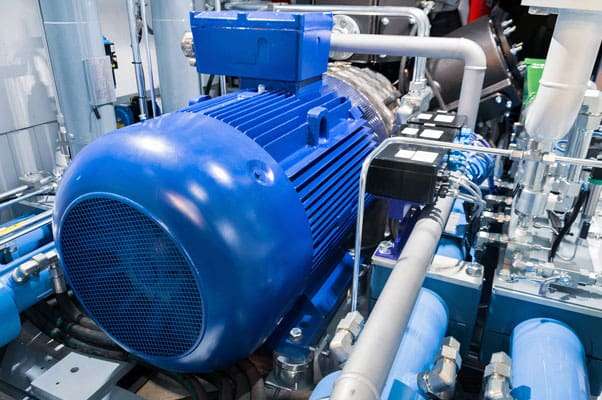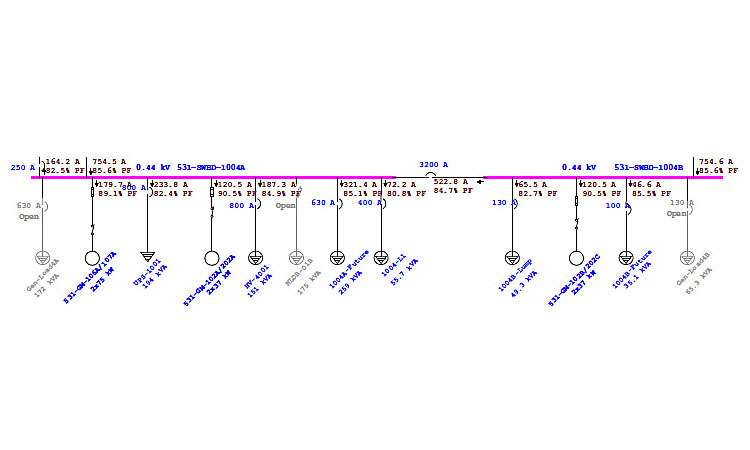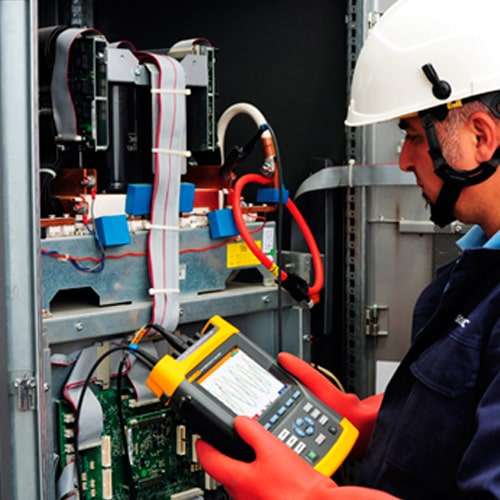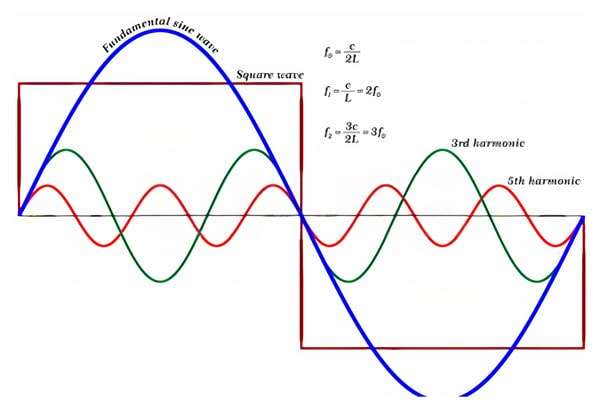Test and Verify Electrical Motor Efficiency in accordance with Greek Guidelines
The global economy uses industrial electric motors to power a wide range of applications. According to the International Energy Agency (IEA), the motor industry can account for up to 70% of all energy used in an industrial setting, 35% in the commercial and service sectors, and 45% of all electricity produced globally.
These facts demonstrate how crucial electric motors are too many industrial processes, with motor failure-related downtime costing thousands of dollars per hour. They are the main cause of greenhouse gas emissions and environmental pollution from power plants. Additionally, they are largely to blame for the developing economies’ sharply rising demand for electricity.
The global economic potential exists for increasing industrial motor energy efficiency by about 20% to 30%, with payback periods of typically less than three years. Electric motors are responsible for about 15%, or 4.3 billion tons, of the world’s annual carbon-CO2 emissions, which total 26 billion tons. One of the most economical and low-risk ways to lower the rising energy demand and lower greenhouse gas emissions is to increase energy efficiency.
Use an efficient motor for these reasons:
- Reduced operating expenses.
- A cooler and quieter operation
- Longer motor life and increased dependability
- Reduced emissions of greenhouse gases
Starting a Motor Analysis:
Not all of the power absorbed by electric motors is converted into mechanical energy; some energy is lost as friction and windage losses, as well as losses in the stator, rotor, and magnetic core. The reason for the decline in motor efficiency is these losses. The necessity and significance of efficiency measurement and minimum energy performance standards are easily understood when considering energy consumption and the industrial use of electric motors.
The test method chosen affects how accurately efficiency and motor loss are determined. There isn’t a single testing technique that is applied globally across all industries. Although it is a straightforward concept, it can be difficult to measure and verify the motor energy efficiency using various standards.
Internationally accepted techniques for evaluating efficacy:
In industrial applications, the following test methodologies are frequently mentioned:
A common test procedure for polyphase motors and generators is IEEE 112-2004. Methods for calculating the efficiency and losses of rotating electrical machinery from Tests, International Electrotechnical Commission (IEC) Publication 60034-2-1, 2014 JEC 37 is the induction machine standard, developed by the Japanese Electrotechnical Committee. ANSI/IEEE 112-2004
Ten energy efficiency test methods are included in this method. To use the most significant:
- Simple test of input and output.
- Loss-separated input-output test.
- Loss separation back-to-back connected machine test.
- Calculation of load losses using residual losses that have been smoothed.
- The Eh-star approach
There are three different categories for the IEC standard test:
- Measuring the input-output power of a single machine.
- Measuring the input-output power of two connected machines back-to-back.
- One machine’s losses were measured.
The additional load losses are completely ignored by the Japanese JEC standard 37 test procedures. Reduced operating costs for businesses are just one important economic and environmental benefit of increasing the energy efficiency of equipment and appliances.
We offer motor start analysis services in all major cities, including Athens, Thessaloniki, Patras, Larissa, and Heraklion.
Share Post
Related Posts
-
How to Conduct Power Quality Analysis in Greece
-
Power Quality Working Principles in Greece
-
The Importance of Load Flow and Short Circuit Analysis for a Greek Business
-
Test and Verify Electrical Motor Efficiency in accordance with Greek Guidelines
-
How to evaluate efficiency and dependability of commercial motors?
-
Arc Flash Analysis in Greece: A Step-by-Step Guide
-
Load Flow, Short Circuit, and Relay Coordination in Power System Analysis
-
Why is Harmonic Analysis and Study Important for Greek Businesses?
-
Importance of Arc Flash Hazard Analysis and Mitigation Methods
-
Harmonic Analysis in Power System in Greece






